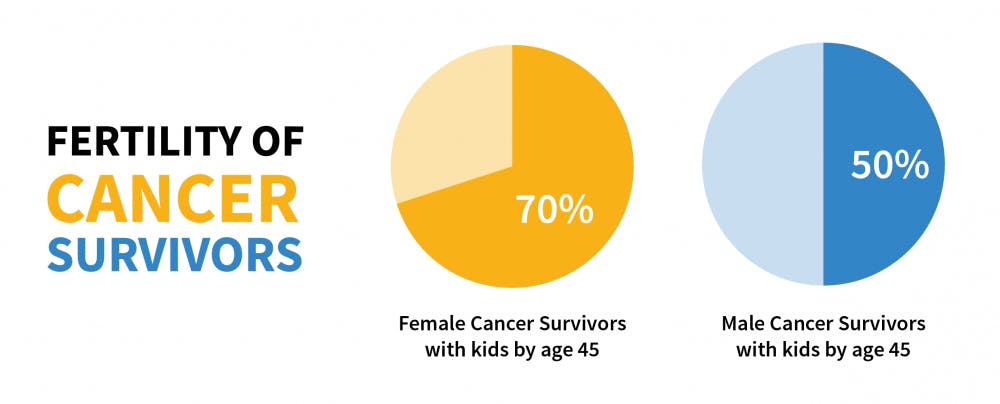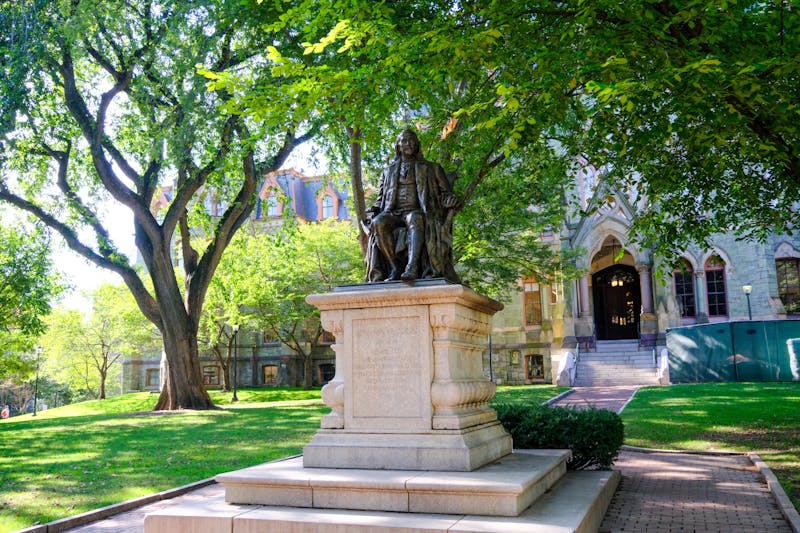
A team of researchers led by Perelman School of Medicine Cancer Biology professor Sandra Ryeom recently published a study on possible fertility preservation for male childhood cancer survivors in the Nature Communications journal.
Previously, only males who reached puberty before cancer treatment could freeze their donated sperm for future use, as many young boys undergoing cancer treatment are left infertile, reported Forbes. This new study shows that prepubescent boys may also be able to preserve their fertility.
A 2014 childhood and adolescent cancer statistic by the American Cancer Society reported that 1 in 530 people between the ages of 20 and 39 is a childhood cancer survivor.
According to Forbes, male survivors are three times more likely to experience fertility issues than female survivors. Cancer treatment such as radiation therapy and some chemotherapies can kill sperm-producing cells, lowering sperm count and making it harder for males to produce offspring.
Figures in an article by the Telegraph report that 70 percent of female cancer survivors had children by age 45 as compared to only 50 percent of male cancer survivors.

The researchers in the recent study successfully transplanted donors’ sperm stem cells into infertile mice’s testes, rendering the mice fertile, Forbes reported. Additionally, the researchers found that, since there are few immature sperm cells in prepubescent boys’ testes, sperm cells must first be multiplied in the lab.
"For years researchers have been trying to find ways to grow and expand these cells from testicular biopsies donated by young patients prior to their cancer treatment," Ryeom said in an interview with Forbes. "But until now, there has not been a consistently successful approach."
While the research is successful with mice, it has yet to be successful with humans. Ryeom said the researchers' next step is to test if the sperm-producing stem cells can be used on cancer-free human patients.
The Daily Pennsylvanian is an independent, student-run newspaper. Please consider making a donation to support the coverage that shapes the University. Your generosity ensures a future of strong journalism at Penn.
Donate






